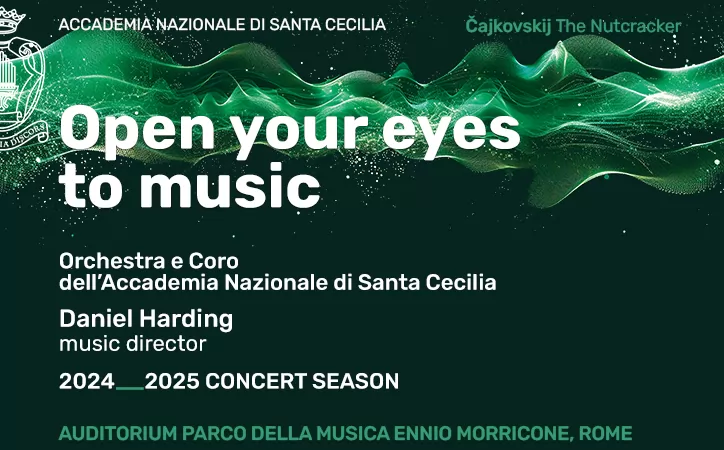A simple guide to Italian government ministries.
Following the victory of Romano Prodis centre-left coalition in Aprils general election, his new government was sworn in on 17 May. The government comprises 102 people, including ministers with and without portfolio, deputy ministers and undersecretaries. It is the largest government in the history of the republic, with 29 more people than in the first Prodi government in 1996-1998 (total 73) and five more than in the last Silvio Berlusconi government (97). Ministers, deputy ministers and undersecretaries come from 11 different parties: LUlivo, Democratici di Sinistra (DS), La Margherita, Popolari-Unione Democratici per lEuropa (UDEUR), Italia dei Valori, Federazione dei Verdi, Rosa nel Pugno, Socialisti, Partito dei Comunisti Italiani (PCI), Partito della Rifondazione Comunista and Alleanza Lombarda. In addition, there are a number of independent ministers, such as the economy and finance minister Tommaso Padoa-Schioppa. In total, the new government comprises 18 ministers with portfolio, some of whose ministries have been newly created or divided from former ministries that performed wider functions. There are also a further seven departments headed by ministers without portfolio (cabinet members who do not head a particular ministry but who are assigned tasks by the prime minister). Below is a list of the ministries with some of the hot topics facing the new government. Most of the ministries have informative websites.
Affari Esteri (Foreign Affairs)
www.esteri.it
Minister: Massimo DAlema, former prime minister (1998-2000), current deputy prime minister and president of the DS.
Issues: withdrawal of Italian troops from Iraq and strained relations with the US and diplomatic negotiations with Iran, the Middle East and the United Nations.
Ambiente e Tutela del Territorio (Environment)
www.minambiente.it
Minister: Alfonso Pecoraro Scanio, leader of the Verdi.
Issues: improving Italys current reputation after European Union (EU) commissioner Stavros Dimas put the country last among EU members for environmental protection.
Beni e Attivit Culturali (Fine Arts and Cultural Heritage)
www.beniculturali.it
Minister: Francesco Rutelli, leader of the Margherita party, current deputy prime minister and former mayor of Rome.
Issues: restoration and conservation of national monuments, staffing of museums, funding for the arts and sale of national heritage.
Commercio Internazionale e Politiche Europee (International Trade and European Policies)
www.politichecomunitarie.it, www.mincomes.it
Minister: Emma Bonino (Rosa nel Pugno), a former European commissioner.
New: this ministry brings together the former ministry of foreign trade and the department of European community policy.
Issues: simplification of EU regulations, negotiations on common EU foreign policy, especially in Afghanistan and the Middle East, EU expansion plans.
Comunicazioni (Communications)
www.comunicazioni.it
Minister: Paolo Gentiloni (Margherita), former president of the commission responsible for overseeing the Italian public broadcaster RAI (commissione vigilanza RAI).
Issues: control and supervision of the state broadcasting system, future telecommunications policy and pricing, private broadcasting concessions.
Difesa (Defence)
www.difesa.it
Minister: Arturo Parisi (Margherita), founding member of the Margherita.
Issues: withdrawal of troops from Iraq, allocating forces to Afghanistan, European defence procurement.
Economia e Finanze (Economy and Finance)
www.mef.gov.it, www.tesoro.it
Minister: Tommaso Padoa-Schioppa (Independent), highly respected former deputy director-general of the Bank of Italy and advisor to the European Central Bank.
Issues: reducing the budget deficit and public debt, kick-starting the economy and increasing competitivity. Introduction of a special package of measures (the so-called manovra bis) in July to tide over the economy until the next budget at the end of this year.
Giustizia (Justice)
www.giustizia.it
Minister: Clemente Mastella, leader of the centrist UDEUR who served as employment minister in the first Berlusconi government in 1994.
Issues: reform of the judiciary, amnesty for prisoners.
Infrastrutture (Public Works and Infrastructure)
www.infrastrutturetrasporti.it
Minister: Antonio Di Pietro, founder of the party Italia dei Valori and former member of the European parliament. He was also a prosecutor in the Mani Pulite (Clean Hands) corruption scandals in the early 1990s, investigating corruption within the political and business spheres.
New: previously part of the former ministry of public works and transport.
Issues: funding for public works in progress, controversy over the bridge over the Straits of Messina and the high-speed train system (TAV) through the Frejus tunnel and the Piedmont region.
Interno (Interior)
www.interno.it
Minister: Giuliano Amato (LUlivo), former prime minister (1992-1993 and 2000-2001).
Issues: public safety, anti-terrorism measures, fighting organised crime, immigration control.
Istruzione (Education)
www.istruzione.it
Minister: Giuseppe (Beppe) Fioroni (Margherita).
New: previously part of the former ministry of education, universities and research.
Issues: implementing, changing or cancelling the secondary school reforms introduced by the previous minister of education, Letizia Moratti (now mayor of Milan).
Lavoro e Previdenza Sociale (Employment and Social Security)
www.welfare.gov.it
Minister: Cesare Damiano (DS), former head of the Italian General Confederation of Labour (CGIL) trade union.
Issues: attempting to combine flexibility of labour contracts with security of employment for young entries into the work force. Reforming the present system of pensions, severance pay and TFR (trattamento fine rapporto) paid to employees at the end of a work contract.
Politiche Agricole, Alimentari e Forestali (Agriculture, Food and Forests)
www.politicheagricole.it
Minister: Paolo De Castro (LUlivo), former agriculture minister under the two consecutive Massimo DAlema governments (1998-2000).
Issues: implementing EU farm policies and regulations, surveillance of the use of genetically-modified crops, policing food quality controls and encouraging rural development.
Salute (Health)
www.ministerosalute.it
Minister: Livia Turco (DS), former minister without portfolio for Social Solidarity (now a ministry) in the Prodi, DAlema and Amato governments.
Issues: funding of the health system, control of public health, stem cell research.
Solidariet Sociale (Social Solidarity)
www.welfare.gov.it
Minister: Paolo Ferrero (Partito della Rifondazione Communista), who was voted in to the chamber of deputies for the first time this year.
New: previously part of the employment and social security ministry.
Issues: women in the workforce, family stability and integration of immigrants, drug control.
Sviluppo Economico (Economic Development)
www.attivitaproduttive.gov.it
Minister: Pierluigi Bersani (DS), former minister for industry, commerce and small trades and subsequently minister for transport and navigation in the two DAlema governments (1998-2000).
New: replaces the former ministry of industry.
Issues: gas supplies and mineral resources, tourism and incentives to increase competitivity.
Trasporti (Transport)
www.infrastrutturetrasporti.it
Minister: Alessandro Bianchi (formerly PCI and subsequently independent), rector of the University of Reggio Calabria.
New: previously part of the former ministry of public works and transport.
Issues: railways, roads and airports.
Universit e Ricerca (Universities and Research)
www.miur.it
Minister: Fabio Mussi (DS), former vice-president of the chamber of deputies.
New: previously part of the former ministry of education, universities and research.
Issues: research funding and halting the serious brain-drain from the countrys top research institutes and universities, university reform.
Departments headed by ministers
without portfolio
Affari Regionali e Autonomie Locali (Relations with the Regions and Local Government Bodies)
www.affariregionali.it
Minister: Linda Lanzillotta (Margherita)
Attuazione Programma di Governo (Government Programmes)
www.governo.it/attuazione_programma/index.html
Minister: Giulio Santagata (Margherita)
Riforme e Innovazione nella Pubblica Amministrazione (Administrative Reform)
www.funzionepubblica.it
Minister: Luigi Nicolais (DS)
Diritti e Pari Opportunit (Equal Opportunities)
www.pariopportunita.gov.it
Minister: Barbara Pollastrini (DS)
Rapporti con il Parlamento e Riforme Istituzionali
(Parliamentary Relations and Institutional Reform)
Minister: Vannino Chiti (DS)
Politiche per la Famiglia (Family Policy)
Minister: Rosy Bindi (Margherita)
Politiche Giovanili e Attivit Sportive
(Youth and Sporting Activities Policy)
Minister: Giovanna Melandri (DS)
Number of ministers (with and without portfolio) in the Prodi cabinet according to their
political parties
DS 9
La Margherita 7
LUlivo 2
UDEUR 1
Italia dei Valori 1
Verdi 1
Rosa nel Pugno 1
Partita Rifondazione Comunista 1
Independent 2

















